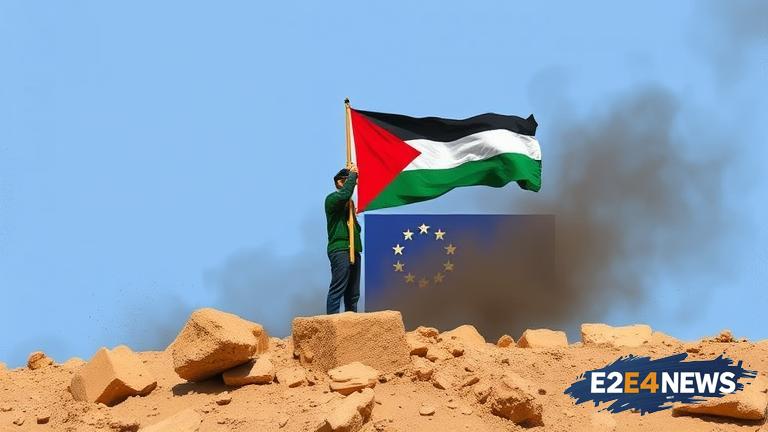Australian Prime Minister Anthony Albanese has engaged in a significant conversation with Palestinian President Mahmoud Abbas, focusing on the pressing issue of recognizing Palestine as a sovereign state. This development comes at a time when Australia is facing increasing pressure, both domestically and internationally, to acknowledge Palestinian statehood. The discussion between Albanese and Abbas underscores the complex geopolitical landscape surrounding the Israeli-Palestinian conflict. Australia’s stance on this matter has been under scrutiny, with many advocating for the recognition of Palestine to help pave the way for a two-state solution. The Australian government has been weighing its options carefully, considering the implications of such a move on its relations with Israel and the broader Middle East. Premier Albanese’s conversation with President Abbas is seen as a crucial step in understanding the Palestinian perspective and the aspirations of the Palestinian people for statehood. The international community, including the United Nations, has repeatedly called for a peaceful resolution to the conflict, emphasizing the need for a two-state solution where Israel and Palestine coexist in peace and security. Despite these efforts, the path to recognizing Palestine as a state is fraught with challenges, including opposition from Israel and concerns about the potential impact on regional stability. The Australian government is navigating these complexities while also considering the views of its own citizens, many of whom support the recognition of Palestine. The pressure to recognize Palestine is not only coming from international quarters but also from within Australia, where there is a significant movement advocating for Palestinian rights and statehood. In recent years, several countries have recognized Palestine as a sovereign state, contributing to a growing international consensus on the matter. However, the decision remains controversial, with some arguing that it could jeopardize the peace process and others seeing it as a necessary step towards a lasting solution. The conversation between Premier Albanese and President Abbas highlights the importance of dialogue and diplomacy in addressing the Israeli-Palestinian conflict. It also reflects Australia’s commitment to playing a constructive role in international affairs, particularly in regions of conflict. As the situation continues to evolve, Australia’s position on Palestinian statehood will be closely watched, both by its allies and by the international community at large. The implications of recognizing Palestine would be far-reaching, potentially influencing not only the Middle East peace process but also Australia’s relations with other countries in the region. In the midst of these considerations, the Australian government must balance its foreign policy objectives with domestic public opinion and the ethical imperatives of supporting human rights and self-determination. The detailed discussion between Albanese and Abbas is a significant development, indicating a willingness on both sides to engage in meaningful dialogue. This engagement is crucial for understanding the complexities of the conflict and for exploring avenues that could lead to a peaceful and just resolution. Furthermore, the conversation underscores the role of international leadership in promoting peace and stability, highlighting the need for collective action and cooperation to address one of the world’s most enduring conflicts. The recognition of Palestine as a state would mark a significant shift in Australia’s foreign policy, aligning it more closely with international law and the principles of self-determination. It would also reflect a commitment to supporting the rights and aspirations of the Palestinian people, who have long sought recognition and statehood. In conclusion, the discussion between Premier Albanese and President Abbas is a pivotal moment in the ongoing debate about Palestinian statehood, reflecting both the challenges and the opportunities that lie ahead. As Australia considers its next steps, it must weigh the potential consequences of its actions, both in terms of its impact on the peace process and its implications for regional and global stability.
